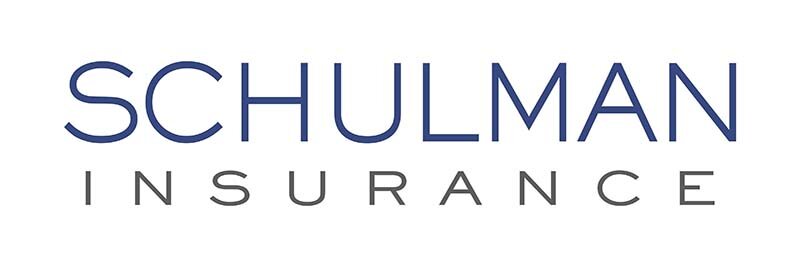Court Vacates Drug Manufacturer Coupon Cost-Sharing Rule
On September 29, 2023, the District Court for the District of Columbia vacated a Department of Health and Human Services (“HHS”) rule that permitted (but did not require) group health plans and health insurance carriers to count manufacturer coupons toward the plan’s cost-sharing. As a result, HHS has been directed to reconsider the rules based on the Court’s decision.
Background
Some drug manufacturers offer financial support (e.g., a coupon) to patients to help pay for certain prescription drugs.
Prior to the issuance of guidance, there were questions as to whether these coupons (and other reimbursements) apply to the participant’s cost-sharing under the terms of the plan. For example, suppose the standard cost for a particular drug is $1,000, but the manufacturer provides a coupon for $600. The unsettled question has been whether the participant should receive credit towards the plan’s out-of-pocket maximum (“OOPM”) for the $400 that the participant actually paid for the drug, or the drug’s actual cost of $1,000.
In 2019, HHS issued a final rule that clarified plans do not have to count the value of drug manufacturer coupons towards a participant’s out-of-pocket calculations if a medically appropriate generic drug is available. Though not specifically stated, the language in the rule suggested that if a medically appropriate generic drug is not available, plans would need to count these coupons when calculating a participant’s cost-sharing. This interpretation raised a conflict for qualified high deductible health plans (“HDHPs”) that are compatible with health savings accounts (“HSAs”), because crediting the coupon towards the deductible may be considered non-HDHP coverage that disqualifies a participant from being eligible to make or receive HSA contributions.
Some drug manufacturers offer financial support (e.g., a coupon) to patients to help pay for certain prescription drugs. Prior to the issuance of guidance, there were questions as to whether these coupons (and other reimbursements) apply to the participant’s cost-sharing under the terms of the plan. For example, suppose the standard cost for a particular drug is $1,000, but the manufacturer provides a coupon for $600. The unsettled question has been whether the participant should receive credit towards the plan’s out-of-pocket maximum (“OOPM”) for the $400 that the participant actually paid for the drug, or the drug’s actual cost of $1,000. In 2019, HHS issued a final rule that clarified plans do not have to count the value of drug manufacturer coupons towards a participant’s out-of-pocket calculations if a medically appropriate generic drug is available. Though not specifically stated, the language in the rule suggested that if a medically appropriate generic drug is not available, plans would need to count these coupons when calculating a participant’s cost-sharing. This interpretation raised a conflict for qualified high deductible health plans (“HDHPs”) that are compatible with health savings accounts (“HSAs”), because crediting the coupon towards the deductible may be considered non-HDHP coverage that disqualifies a participant from being eligible to make or receive HSA contributions.
Subsequently, the Departments of Labor (“DOL”), the Treasury, and HHS (collectively, “the Departments”) issued FAQ Part 40. The Departments recognized the HDHP/HSA conflict and announced they would not initiate enforcement action if a group health plan excludes the value of drug manufacturers’ coupons from the OOPM calculation, even where there is no medically appropriate generic equivalent available. This non-enforcement position remained in effect until further guidance was issued.
In May 2020, HHS published the Notice of Benefit and Payment Parameters 2021 (“NBPP 2021”), a final rule that included a clarification on how drug manufacturer support, including coupons, may accrue towards the OOPM. Under the clarified policy, health insurance carriers and group health plans were permitted, but not required, to count any form of financial support offered by drug manufacturers to enrollees for specific prescription drugs toward the deductible and annual out-of-pocket maximums, to the extent consistent with state law.
It should be noted that with this permissive language, HDHP participants could retain HSA eligibility if drug manufacturer coupons were not credited toward the HDHP minimum statutory deductible.
Court Decision
Three advocacy groups, along with three individuals, challenged the NBPP 2021 drug manufacturer support rule in a lawsuit. The plaintiffs argued that:
• the rule conflicts with both the Affordable Care Act’s (“ACA”) statutory definition of “cost-sharing” and the pre-existing regulatory definition of that term, and
• the rule is arbitrary and capricious for a variety of reasons, including that the same statutory and regulatory language is defined in two conflicting ways.
The Court agreed with the plaintiffs, setting aside the NBPP 2021 drug manufacturer support rule based on both its contradictory reading of the same statutory and regulatory language, and the fact that the agencies have yet to offer a definitive interpretation of the term “cost-sharing” as applied to manufacturer assistance.
The Court directed HHS to reconsider the NBPP 2021 rule in a manner consistent with the Court’s decision.
